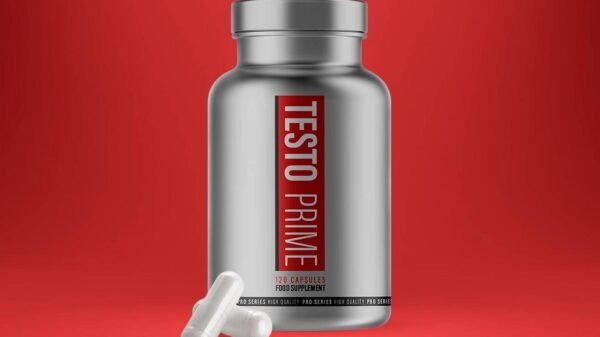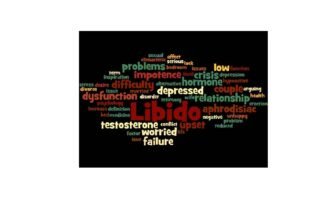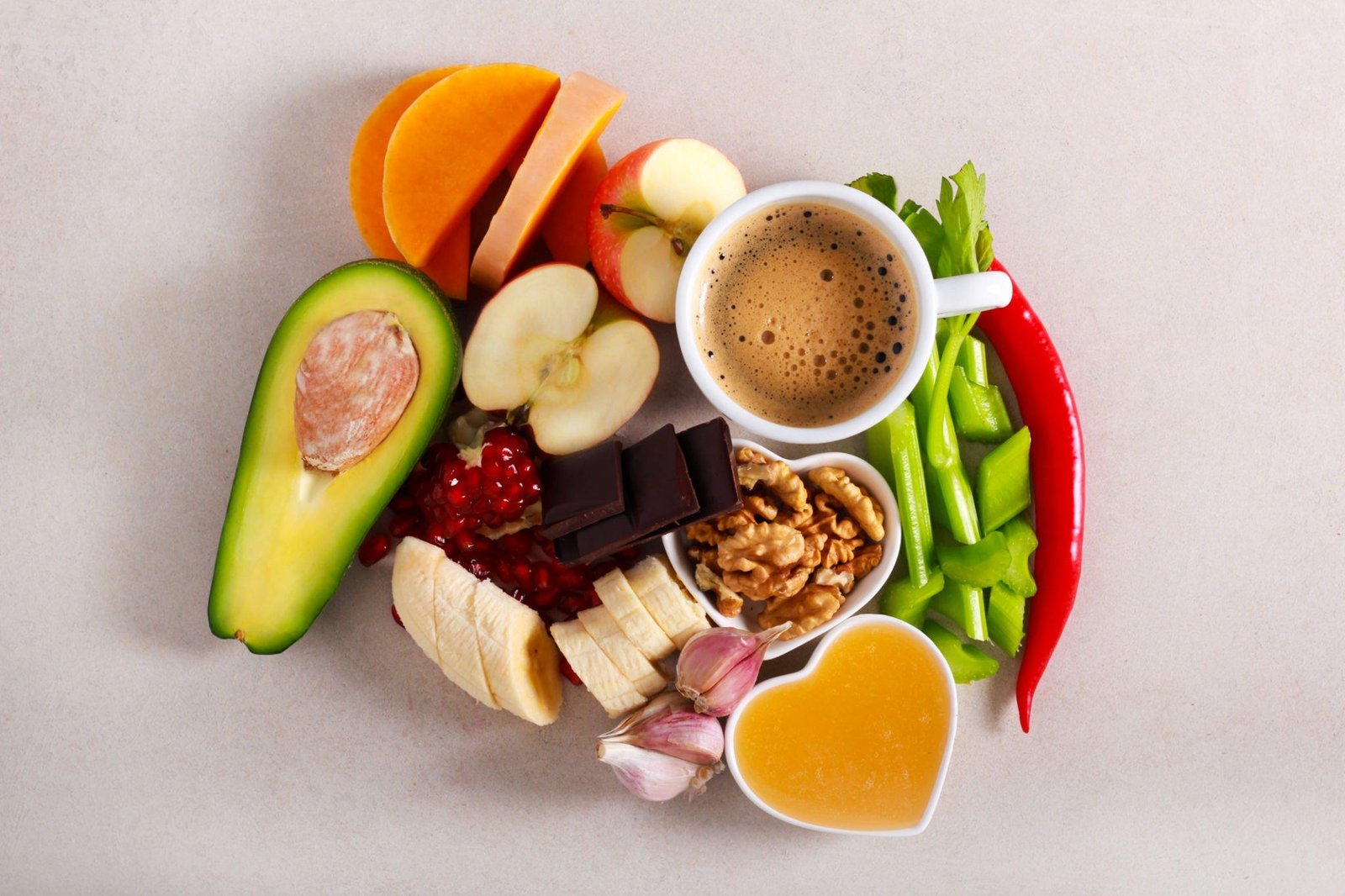How to Naturally Increase Testosterone Levels? What increases Testosterone?
What makes a man? This has been a point of contention for many centuries. However, testosterone is unquestionably the first thing that comes to mind. Testosterone is the primary male sex hormone and plays a significant role in men’s adolescence.
A healthy testosterone ratio promotes both physical strength and masculinity. Additionally, it is a critical factor in males’ physical development.
However, what course of action should you take if your testosterone levels are low? There is a large array of treatments and procedures available in this area, but it is difficult to locate a legitimate one.
In that regard, you have arrived at the correct location. With sufficient investigation on this crucial health issue, we will expose you to the 9 priceless methods for naturally increasing testosterone. And the good news is that these improvements will improve your general health and well-being. Read on and find out how to naturally boost testosterone levels quickly:
9 Top Natural Ways To Increase Testosterone
Consider using Natural Testosterone Booster Supplements

Due to the fact that testosterone replacement treatment is only accessible on a prescription basis, you may choose to investigate natural testosterone boosting supplements. Although the evidence is limited, several studies indicate that some supplements, such as:
Vitamin D:
According to some studies, individuals with low testosterone and low vitamin D levels may benefit from vitamin D supplementation.
However, some research has produced contradictory findings, indicating the need for further data.
If you have low testosterone levels, consider getting your vitamin D levels evaluated and discussing vitamin D supplementation with your healthcare professional.
Magnesium:
Magnesium is required for a variety of bodily functions, including bone formation and muscular function. According to some evidence, there may be a link between magnesium and testosterone levels. Magnesium is an antioxidant that may help preserve testosterone from oxidative damage. While the mechanism is unknown, magnesium supplementation may aid in testosterone maintenance.
Magnesium is a crucial mineral that is intimately connected to many of the body’s important operations, including cellular activity, bone production, and muscular function.
While many competing supplements include magnesium, dietary magnesium always comes first, so go for magnesium-rich foods in plenty, including as greens, nuts, seeds, dried beans, whole grains, and wheat and oat bran.
Magnesium supplementation for four weeks has been shown to raise testosterone levels in both athletes and non-athletes.
Although magnesium shortage is more prevalent in the elderly, many younger individuals, such as athletes, may suffer from it as well, since many minerals such as zinc, magnesium, and others are lost via perspiration. As a result, ensure that you drink an adequate amount of magnesium.
A magnesium-rich diet may result in a rise in T levels both directly and indirectly (since magnesium is also responsible for converting Vitamin D into an active form).
Avoid magnesium oxide at all costs, since it may cause serious health problems such as intestinal pain or diarrhea.
Zinc:
Additionally, some experts have discovered that an average Zinc content in the body is essential for the pituitary gland to operate normally, as seen by male reproductive potential.
Zinc has an effect on luteinizing hormone, the hormone that stimulates testosterone synthesis (LH). Additionally, it aids in the conversion of testosterone to DHT. While there is less information on the effect of zinc supplementation on testosterone levels, it may be worth considering if your zinc levels are low. Zinc is the second most abundant element in humans. Apart from its many health advantages, researchers have discovered that zinc may have a significant role in men’s masculinity, fertilization, sperm quality, and hormone production.
Keeping this in mind, aim to add zinc-rich foods into your diet, such as oysters, steak, almonds, poultry, and beans.
Zinc has been shown to have a variety of effects on men’s fertility. Furthermore, low zinc levels in the body have a noticeable unfavorable influence on testosterone levels.
Ashwagandha:
This medicinal plant is a “adaptogen,” a naturally occurring substance that aids the body in coping with stress. In a small 2019 trial, overweight men who took an ashwagandha supplement for 16 weeks had an average boost in testosterone levels of about 15%, compared to those who got a placebo.
The health benefits of ashwagandha are mostly attributable to the high amounts of chemicals called withanolides found in the roots. Typically, extracts are standardized for their content of withanolides. While Ashwagandha is generally considered a safe herb, as with any herbal supplement, it is suggested that you see your naturopath or health practitioner on your specific requirements. It is available as a liquid extract or as a powder (the powder can be used to make a delicious ashwagandha latte with cinnamon and almond milk).
The health benefits of ashwagandha are mostly attributable to the high amounts of chemicals called withanolides found in the roots. Typically, extracts are standardized for their content of withanolides. While ashwaghanda is generally considered a safe herb, as with any herbal supplement, it is suggested that you see your naturopath or health practitioner on your specific requirements. It is available as a liquid extract or as a powder (the powder can be used to make a delicious ashwagandha latte with cinnamon and almond milk).
Fenugreek:
Supplements containing this plant are available over-the-counter. The judgment is still out on whether fenugreek may stimulate testosterone production. A study of the medical literature revealed that although some research indicates that fenugreek may increase testosterone, others indicate that it has no effect. Additional study is required in this area.
DHEA:
Dehydroepiandrosterone, or DHEA, is an adrenal gland hormone. It is the precursor of the testosterone precursors. This implies that it may boost the levels of precursor hormones to testosterone (such as androstenedione and androstenediol), but does not seem to directly alter testosterone levels.
Use Testoprime Product To Increase Testosterone Levels

It is a regular occurrence for males to see a natural fall in testosterone levels as they age. This may manifest as low energy, a lack of sexual desire, occasional lethargy and exhaustion, increased stress levels, weight gain, or overall bad health.
While it is common, it is not pleasurable, and low testosterone may have a detrimental effect on men’s physical and mental health, it is normal to desire to correct these symptoms.
Over the last five years, Testoprime has become a well-known name in the supplement industry. Research and testing by third parties have cost the firm a lot of money.
TestoPrime is one of the best testosterone supplements that contains vitamins and fruit extracts to assist men in their forties and older in regaining testosterone levels. An allergy to the product is not a problem since it doesn’t include any additives.
Despite the fact that this supplement is accessible without a prescription, it has taken the market. You may use it as long as you don’t have a life-threatening medical condition. If you’re not happy with it, you may return it for a full refund if you purchase it from the official website.
In addition, the product is backed by a large number of consumer reviews. Only TestoPrime has a 98 percent customer satisfaction rating for potency and efficacy.
What Is the Mechanism of Action of TestoPrime?
Older males are more likely to suffer from low testosterone levels than younger guys. It’s very uncommon for this to result in exhaustion, diminished sexual drive, and difficulties lowering weight or increasing muscularity in compared to earlier years.
More natural testosterone is released into the bloodstream when you take four TestoPrime capsules daily. Because of the vitamins in the ingredients, your body’s capacity to burn fat for energy is strengthened, and this, in turn, leads to benefits like improved blood flow and an increase in sex desire. When estrogen levels are too high, TestoPrime acts as a natural estrogen blocker, preventing the production of the ‘female hormone’ from taking place.
In 14-20 days, the majority of men who have taken TestoPrime have seen improvements in their muscle strength, body fat percentage, and overall appearance, all without doing any more exercise than they would have otherwise. It’s also possible that it has benefits for your mental health, such as improving your mood and lowering your anxiety.
Click here to read Testoprime in-depth review
Is TestoPrime Safe to use?
Testosterone is the primary male sex hormone, as we all know. Having a low sperm count impacts a man’s libido, muscular mass, and facial hair development. Healthy energy, sleep, and fat metabolism are all supported by testosterone production. Infertility, sleeplessness, reduced libido desire, depression, and exhaustion may all result from low testosterone levels.
Many commercial testosterone boosters are safe to use at the suggested dosage. However, they may be quite efficient in boosting testosterone levels when taken in moderation. It’s more likely to have adverse effects if you’re taking them in large doses to obtain results quickly.
There are several testosterone supplements on the market, but none are recommended or approved by the Food and Drug Administration, despite the fact that many, including TestoPrime, include scientifically proven natural substances that may boost testosterone levels and improve blood flow.
Claim a bottle at 20% OFF from official website
A Well-Balanced Diet Consisting of Proteins, Carbohydrates, and Fats
Adhere to a sound diet plan that ensures enough consumption of all vital nutrients in the right quantities to boost testosterone naturally. A well-balanced diet is critical for increasing T levels. Numerous studies demonstrate a substantial correlation between low testosterone levels and unhealthy eating habits.
Numerous vital nutrients, such as proteins, carbohydrates, and healthy fats, may have an effect on your health and hormone secretions.
As a result, make an effort to improve your protein consumption. This will aid in fat reduction, which is also related to testosterone levels. Additionally, it will aid in muscular growth, which is necessary for testosterone augmentation.
According to current health study, a protein-rich diet may significantly benefit in testosterone raising. However, another research discovered that low protein levels may have a detrimental effect on the Leyden cells responsible for testosterone synthesis.
A balanced diet not only boosts T levels, but also provides a slew of other health advantages.
Numerous studies demonstrate that dietary changes may result in hypogonadism. Consuming a well-balanced diet rich in proteins, carbohydrates, and healthy fats will help you reach normal T levels more slowly as you age.
Carbohydrates may cause a sudden rise in your T levels. Consuming a high-carbohydrate diet may be bad to diabetics, but it is related with a high testosterone level in the ordinary individual, according to recent studies. Rather than that, focus on carbohydrates derived from starchy tubers such as potatoes, yams, and pumpkins.
While many of you may believe that lipids have no bearing on testosterone levels, it is critical to consume an adequate quantity of healthy fats to create testosterone properly. Saturated fats are advantageous in this sense.
It is recommended that you include the following meals into your daily routine:
- Proteins that are lean (lean beef, healthy poultry, and seafood)
- Eggs
- Fruits and green leafy vegetables that are vibrant in color (leafy greens, broccoli, berries, carrots, and avocados)
- Beans and legumes
- Nuts, seeds, and vegetable oils that are edible
- Grains in their entirety
In summary, a healthy food will result in a healthier weight, which will likely raise your T levels as you age.
Exercise and Weight Lifting
Exercises are often the most important aspect in avoiding a wide variety of health problems. Surprisingly, this may also be the greatest option for boosting testosterone levels. You may naturally enhance your testosterone levels by incorporating a few key parts of training and routines.
Low testosterone levels are almost always associated with diminished energy, decreased muscular mass, and poor mental health. Exercises may be very beneficial in this respect.
Exercises boost testosterone in two distinct ways:
It aids in the development of muscular mass. Increased T levels will occur as a consequence of healthy muscular development.
Exercises assist in balancing and maintaining weight. Numerous studies have shown a strong association between low testosterone levels and obesity.
Heavy training, such as weight lifting, has been demonstrated to be the most effective strategy to increase testosterone. Lifting heavy weights may assist in increasing muscle mass and, therefore, T levels. If you’re new to this, hire a trainer to teach you the fundamentals.
When combined with weight lifting, high-intensity interval workouts may be the ideal combo for not just increasing your T levels but also promoting heart health.
Additionally, it has been shown that high-intensity exercise has a beneficial influence on testosterone levels. Resting for a few minutes between intervals has been shown to be more beneficial.
Moderate aerobic activities also help, since they protect the heart and restrict excessive cortisol production, which may have a detrimental effect on muscle mass and T levels.
Avoid chronic and continuous workouts such as cycling, jogging, and swimming for an extended period of time, since they may create issues with your testosterone production.
Reduce Stress
Stress may have a variety of detrimental consequences on your physical and emotional health, ranging from disrupting sleep to impairing immunological function, cardiovascular health, and sexual well-being.
Numerous these elements are intimately related to testosterone production (as detailed in further detail below), making it critical to maintain a healthy stress level if you want your body to create the maximum amount of testosterone possible.
While stress reduction may not often happen instantly, making a few little modifications to your routines and lifestyle can have a significant influence over time. Make an attempt to alleviate tension by:
Including meditation in your regular routine — a very effective method of stress reduction.
Maintaining an active lifestyle. Physical exercise may assist in the reduction of stress. As mentioned before, it’s also critical for maintaining appropriate testosterone levels.
Developing and maintaining healthy sleeping patterns. We’ve discussed how to do this, as well as why it’s critical for maximum testosterone production.
Avoiding or minimizing stressors, expressing oneself, and maintaining a healthy sense of self-esteem.
For instance, research indicates that high cortisol levels — the hormone responsible for moderating your body’s reaction to stress — may result in a decrease in testosterone synthesis.
There is a clear correlation between elevated cortisol levels and testosterone deficiency.
In summary, stress is a significant testosterone depleter and should be avoided at all costs for your overall well-being.
Do Not Ignore Your Mental Health
Mental health should never be overlooked. You may not believe us when we discuss how it impacts testosterone levels in the body. However, when you are anxious or emotionally disturbed, your T-levels decrease dramatically.
Consult a doctor if you believe anything is disturbing you and making you depressed. Always speak with specialists about your mental health, since it is not something to be taken lightly.
Additionally, keep an eye on the drugs you are taking for any health conditions. This is because they may include any substance that contributes to low T levels. This may not occur, but you should exercise caution and speak with your online therapist if you have any of these symptoms.
Steer Clear of Estrogen-Like Compounds
Numerous additional variables can have an effect on your T levels. For instance, a healthy life is contingent upon the proper control of sex hormones such as testosterone.
Always attempt to avoid some substances, such as endocrine disruptors, since they might adversely affect your hormones. Several of them are estrogenic chemicals that might have a negative effect on your testosterone levels. Therefore, avoid BPA, Parabens, and other substances.
They operate as estrogen-rich components, and owing to their identical makeup, your body may have difficulty distinguishing them. They cause disruptions in the body’s usual activities. As a result, pick items that do not include them.
Abstain from Alcohol and Drugs
It is a well-known truth that excessive alcohol and drug usage may have a number of negative consequences for your health, most notably for your liver. However, does alcohol have an effect on your T levels?
Yes, it is. When you ingest alcohol or other comparable substances, it takes a long time for your body to break down and metabolize the alcohol. One manner, your system is primarily focused on this duty, which leads your liver to work harder.
During this process, your liver is unable to execute other activities, such as the breakdown of certain hormones, such as estrogen and testosterone. In other words, when you drink alcohol on a regular basis, your testosterone levels are lower than when you abstain from alcohol.
While some guys may maintain a normal T level while ingesting alcohol, this is uncommon. If you want to maintain a normal and healthy T level, you should avoid alcohol and other drug supplements.
After 30 days of abstinence from alcohol and drugs, you may achieve an average testosterone level. Appropriate T levels are critical for your health and well-being. As a result, abstaining from alcohol and other drugs may be the simplest approach to accomplish such aims.
Concentrate on Getting Adequate Sleep
Because the majority of testosterone is produced and released when you sleep, enough sleep is critical for maintaining healthy testosterone levels.
Between 50 million and 70 million individuals in the United States suffer from some kind of sleep disturbance. If you’re one of the many individuals who have difficulty sleeping or just don’t get enough hours of sleep every night, this may have an influence on your testosterone levels.
It’s worth emphasizing that research on this subject is still in its infancy — which explains the prior two studies’ very tiny sample sizes.
While there is no study on the best amount of sleep for testosterone, you may utilize the CDC’s advice of seven or more hours each night as a starting point for good sleep. The National Sleep Foundation advises seven to nine hours of sleep every night for adolescents and young adults.
If you feel as if you need more or less sleep, you may change your sleep schedule to reflect your mood throughout the day.
If you have difficulty falling and staying asleep, even minor adjustments to your lifestyle might have a startling effect.
For instance, a 2011 small research discovered that young males who experienced a week of sleep restriction, sleeping just five hours each night, had testosterone levels in the daytime that were 10% to 15% lower than usual.
A separate 2005 research discovered that testosterone levels rise during sleep and drop during waking hours. In brief, obtaining enough sleep each night is critical for proper testosterone production.
Sunlight is necessary for Vitamin D production.
Testosterone makes you macho, while vitamin D strengthens your bones and muscles, according to modern research.
However, it has recently been shown that these two biomarkers are related with a variety of different biological activities and may influence one another’s levels.
Always ensure that your food contains an adequate amount of vitamin D. Numerous supplements are available on the market. Another alternative is to spend time outside in the sunlight, which is the most dependable and effective method to get vitamin D.
Vitamin D is a necessary vitamin that may be obtained via sun exposure and a variety of dietary supplements. Vitamin D is critical for the healthy development and function of bones, muscles, neurons, and various bodily organs.
A few years ago, it was found that males with low vitamin D and testosterone levels may be at an increased risk of cardiovascular disease. Additionally, individuals with low T levels may face other sexual difficulties such as erectile dysfunction and decreased sexual desire. Vitamin D may be used to treat these.
Numerous studies have been conducted to determine the effect of vitamin D in testosterone enhancement. Vitamin D deficiency has been shown to possibly decrease testosterone levels. Additionally, it may result in an abnormal functioning of the testes.
As a result, the sun is the greatest source of vitamin D. Vitamin D is absorbed into the body when you consume vitamin D-rich supplements or expose your skin to solar rays. Your liver will then convert it to the active form, 25(OH) D, which is what your doctor is looking for when recommending a Vitamin D blood test.
Vitamin D in its active form is then delivered throughout your body for various activities. It has now been shown that the male reproductive system is one of its recipients.
Apart from that, there are many more methods to get vitamin D, including the following:
- Consume fatty fish and seafood such as mackerel, oysters, and shrimp.
- Increase your mushroom consumption
- Consume eggs as part of your diet plan.
- Consume foods supplemented with vitamins and minerals such as milk, orange juice, yogurt, tofu, cereals, soy, and almonds.
- Supplements with vitamin D
Mix cardio with strength training
To begin, exercise in general may assist you in losing weight and/or maintaining a healthy weight. Additionally, we now understand that being overweight might lead to decreased testosterone levels. Therefore, if you are not currently exercising, beginning a weight-loss training plan may assist improve your levels.
However, why would you schedule time for both aerobic and strength training?
Cardiovascular exercise is an excellent method to burn a lot of calories, while strength training may assist raise your total metabolism so that you continue to burn calories even when you’re not exercising.
Additionally, both forms of exercise — particularly strength training — might assist you in regaining some of the muscle mass you may have lost as a consequence of low testosterone.
Whether you’re new to exercise or returning to it, keep in mind that everyone’s fitness level differs and that the ideal technique for you to burn calories may be different from the person on the treadmill next to you. Cardio might be a lengthy run or brisk strolling.
And don’t be afraid if you’re new to strength training. Consider beginning with bodyweight exercises, which depend on your own body weight to help you improve entire body strength – no gym membership required.
We live hectic lives, and it’s easy to put exercise on the backburner. Either we don’t make time for it regularly in the first place, or we discover a certain sort of exercise that we love and repeat it. However, including cardio and strength training into your weekly exercise program provides you the greatest chance of increasing testosterone levels.
Foods that Boost Testosterone Levels Naturally
Our food has a significant impact on our testosterone production.
Our glands need particular minerals — such as zinc and magnesium — to initiate testosterone synthesis, and our Leydig cells require cholesterol to do so.
Certain vegetables, such as broccoli, cauliflower, and cabbage, may help enhance T levels by eliminating estrogen-lowering estrogens from our bodies.
There is a reason why old school strong men drank raw eggs – studies indicate that greater fat and cholesterol intake resulted in increased total testosterone levels; men on low-fat diets often have lower testosterone levels. Here are some foods that increase testosterone naturally:
Honey
Honey includes boron, a naturally occurring mineral found in both diet and the environment. It is related to assisting in the rise of testosterone levels and is also beneficial for the development of strong bones and muscles, as well as the enhancement of cognitive abilities and motor coordination.
Spinach
Spinach has long been regarded as one of the most effective testosterone boosters available! It was Popeye’s favorite cuisine for a reason! Spinach is a natural supply of magnesium, a mineral that has been proven to favorably link with testosterone levels. Additionally, spinach includes vitamin B6 and iron, both of which are good testosterone builders!
Oysters
Oysters are often referred to as an aphrodisiac, and there is data to back this up! Testosterone stimulates libido, and oysters have a natural source of zinc! As previously stated, zinc is critical for the appropriate synthesis of testosterone! Seafood is known to be jam-packed of vitamin D which is essential for boosting testosterone.
Garlic
Garlic includes a chemical called allicin that may help reduce cortisol levels. Cortisol is generated in the adrenal gland, the same organ that produces testosterone. When the body is stressed, it creates cortisol, which has an effect on various biological systems, including testosterone production. Thus, by lowering cortisol levels in the body, you enable the adrenal gland to generate testosterone more efficiently. While garlic is not a testosterone enhancing meal in and of itself, it is a cortisol reducer and hence increases testosterone levels through association.
Eggs
Eggs are an excellent source of protein, cholesterol, vitamin D, and omega-3 fatty acids, all of which contribute to testosterone synthesis. Eggs are a particularly flexible item since they not only assist boost testosterone levels, but their protein content also aids in muscle growth!
Almonds
Almonds are abundant in the mineral zinc, which has been shown to increase testosterone levels in zinc deficient individuals.
If you are zinc deficient, this may prevent the pituitary gland from producing some essential hormones necessary for testosterone stimulation. By consuming zinc-rich foods, you may assist prevent this and avoid a decrease in testosterone levels.
Oatmeal
Porridge oats are a rich source of B vitamins, which are necessary for adequate testosterone synthesis. Numerous B Vitamins exist, many of which are contained in testosterone-boosting diets. Vitamin B6 is one B vitamin that has a direct effect on testosterone synthesis since it inhibits estrogen production, allowing testosterone levels to grow!
Oats are a good source of a number of B Vitamins and are therefore one of many great testosterone boosting meals! For further information on B Vitamins and their involvement in testosterone production, please visit this page.
Lemons
Lemons, as well as other citrus fruits, are excellent testosterone boosters! As with garlic, they assist in lowering cortisol levels, allowing testosterone to be created more quickly. Additionally, they include vitamin A, which is necessary for testosterone synthesis and may help suppress estrogen levels, allowing testosterone to be more effective.
Tuna
Tuna is a good source of vitamin D, which, according to experts at Austria’s Graz Medical University, may help increase testosterone levels by up to 90%! Vitamin D is necessary for sperm count maintenance, and tuna is a fantastic source of this vitamin, particularly if you are unable to spend much time outdoors!
Bananas
Bananas include an enzyme called bromelain, which has been shown to aid in testosterone augmentation. Bananas are also a wonderful source of energy and antioxidants, making them the ideal on-the-go snack!
Salmon
Wild salmon of the highest quality is a wonderful addition to the list of testosterone boosting foods since it includes magnesium, vitamin B, and omega-3 fatty acids, all of which have been shown to improve testosterone levels. Not only that, but it also contributes to the reduction of the ‘Sex Hormone Binding Globulin,’ which renders testosterone ineffective. If this level is decreased, testosterone may have a greater effect on your body.
Conclusion
Testosterone has a profound effect on your health and well-being, influencing everything from sexual desire to several elements of physical strength.
Testosterone is a critical sex hormone for men. It is responsible for everything from controlling your sexual urge to assisting you in maintaining a healthy sperm count, bone strength, and muscular mass.
Additionally, it has a big impact on your wellness, with evidence showing that low testosterone levels may be related with mood disorders such as anxiety and sadness.
As such, it’s logical that you’d want to maintain a healthy testosterone level. From the food you eat to the supplements you take, the quality and amount of sleep you receive, and how frequently you exercise, a multitude of variables all contribute to your body producing testosterone. Hopefully, this post answered your query on how to boost testosterone naturally and with efficacy!







